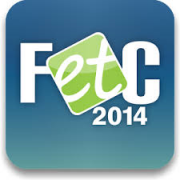3rd of 5: Leadership and Google Apps in Your District

At the NJ Google Apps for Education Summit this month, we had the opportunity to briefly present and discuss the role and impact of Google Apps in K-12 Education with administrators and leaders from several districts. This post is the 3rd of 5 on Leadership and Google Apps in Your District.
Learn, Plan, Execute, Review, Repeat
As noted in the first post in this series, your Google Apps deployment gets you to the starting line. The race, however, is a marathon and not a sprint. Schools often set lofty goals and objectives with the intent of doing as much as possible as soon as possible. While aggressive plans are fine, districts need to avoid overwhelming staff with initiatives that require new skills, tools, and methods. While training and professional development is critical, rushing to pull it together to meet arbitrary deadlines creates stress and makes integration of Google Apps, devices, apps, and content more difficult.
Educators must be confident in their own ability to use and manage the technology and methods before they stand in front of their classes. Allow teachers and staff to learn, incrementally, and to apply what they’ve learned before moving forward.
Some of the elements of a successful professional development program include:
- Clear long-term goals and near-term objectives
- Established tracks based on roles: administrator, teacher-centric, student-centric, etc.
- Sufficient training on basic use of Google Apps — what it can do and the clicks you need to do it.
- Use-case centric education on applying the features of Google Apps to classroom use. Using suggested edits and comments to facilitate paperless homework and collaborative lesson planning are two examples.
- Allow educators time to plan and use what they have learned before moving forward. Holding a half day workshop every 3 months can be more effective than two full days of training in August.
- Help faculty integrate the use of technology and the Google Apps ecosystem into lesson plans.
- Provide a means for faculty to practice in front of peers, with feedback, before using new technology in front of students.
When it comes to integrating Google Apps, Chrome devices, tablets, and other technologies into the learning process, professional development must be more than a set of classes for continuing ed credits. A sound curriculum and plan, that helps faculty and staff advance their capabilities of time, is a key to success.
—
If you are interested in a professional development assessment covering Google Apps, Chromebooks, and/or Play for Education tablets, please contact us.



 As you have probably heard, there is a Federal lawsuit against Google in California that accuses Google of mining student data for commercial purposes. We have received a few questions and should expect we will have more.
As you have probably heard, there is a Federal lawsuit against Google in California that accuses Google of mining student data for commercial purposes. We have received a few questions and should expect we will have more.

 Visitors to FETC in 2014 in Orlando later this month have a unique opportunity to learn how Google Apps for Education can serve as platform for robust administrative and classroom computing.
Visitors to FETC in 2014 in Orlando later this month have a unique opportunity to learn how Google Apps for Education can serve as platform for robust administrative and classroom computing.